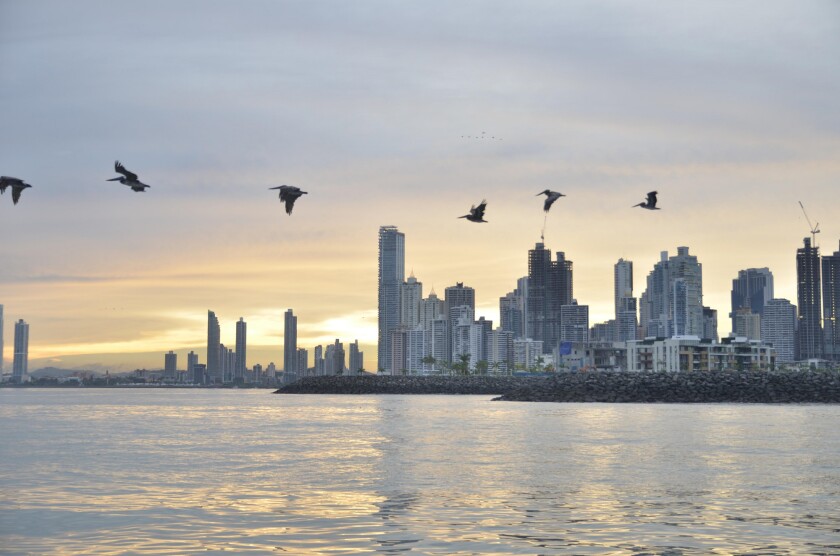Market overview
Panama's M&A environment has historically been relatively stable and conducive to dealmaking, with numerous cross-border transactions taking place. Panama's strategic location at the crossroads of North and South America, and its status as a major financial and logistics hub, makes it an attractive destination for foreign investors looking to expand their operations in the region.
One hot topic in Panama's M&A landscape is the country's ongoing efforts to attract foreign investment and promote economic growth. To this end, the Panamanian government has implemented a number of measures aimed at streamlining the regulatory environment and making it easier for foreign companies to do business in the country. For example, in 2020, Panama passed a law establishing a new regime for the registration of multinational companies, which is intended to simplify the process of establishing a presence in the country for foreign investors.
Another hot topic in Panama's M&A environment is the increasing importance of sustainability and social responsibility in dealmaking. Many investors are now placing a greater emphasis on ESG factors when evaluating potential investments, and Panama's government and business community are increasingly recognising the importance of sustainable development in the country's long-term economic growth.
There have recently been purely offshore transactions in neighbouring countries that have chosen to use Panama law to govern the share purchase agreements via which they sell assets abroad. It is interesting to note that foreign buyers and sellers are recognising the stability and sophistication of the Panamanian legal industry, both in terms of local private practitioners and with respect to the quality and depth of Panamanian arbitrators.
Furthermore, as certain sectors continue to consolidate, antitrust analysis for M&A transactions becomes more relevant and thus Panama’s local regulators become increasingly more sophisticated.
Economic recovery plans
In 2021, the COVID pandemic had a significant impact on the global economy, and Panama was no exception. Despite the challenging economic environment, Panama still had several notable M&A transactions take place in sectors such as finance, real estate, and telecommunications.
As for how M&A deal flow in 2022 compared with 2021 and previous years, there was an uptick in new transactions in 2022; 2021 mostly featured the completion of transactions that had been signed before 2020. However, in general, M&A activity tends to be influenced by a variety of factors, including economic conditions, industry trends, and geopolitical developments. Given the ongoing uncertainty surrounding the pandemic, it is possible that M&A activity in Panama and elsewhere could continue to be affected in the coming years.
Increased deal flow is expected to continue in 2023. Given the consolidation in the banking sector worldwide, further consolidation of smaller to medium-sized local banks and brokerage houses can be expected.
Presumably, there will also continue to be transactions of distressed assets as a result of economic changes after the COVID outbreak.
In 2021 and 2022, there was an increase in M&A activity for distressed assets. For 2023, while M&A for distressed assets will continue to be seen, deal structures are expected to return to an equilibrium, being mostly driven by strategic considerations.
There has been an increase in activity by financial investors interested in the purchase of distressed companies or companies in which they believe additional efficiencies can be obtained, particularly in the retail sector.
Shareholder activism is not yet a trend in the Panamanian market.
Legislation and policy changes
M&A transactions in Panama are impacted by provisions of the Commercial Code, the Civil Code, and, depending on the nature of the target company, Law No. 32 of 1927, as amended (the Corporations Law), the Limited Liability Company Law and industry-specific regulations (banking, securities, mining, energy, etc.). As M&A activity tends to lead to taxable events, the Tax Code and its regulations are also applicable.
The primary regulator for M&A activity depends on the nature of the business undertaken by the target company. For example, in the case of banks, the primary regulator is the Superintendence of Banks of Panama, and in the case of broker-dealers or investment advisory firms, the primary regulator is the Superintendence of the Securities Market. In all cases that may result in an economic concentration, the antitrust authority (the Consumer Protection and Competition Defence Authority, or ACODECO) could play a key role.
Practice insight/market norms
The most common mistake or misconception is that there are no economic concentration regulations in place in Panama that need to be considered in an M&A transaction. M&A transactions in Panama can be directly affected by Law No. 45 of 2007 (the Consumer Protection and Competition Defence Law) and Executive Decree No. 8-A of 2009, through which ACODECO approves the Guide for the Control of Economic Concentrations, even though these regulations do not establish a specific threshold for review of transactions.
The types of transactions covered are all those that fit into the economic concentration concept, as established by Law No. 45, which includes any merger or acquisition of control, or any other act by virtue of which corporations, partnerships, associations, shares, social parties, trusts, establishments, or assets in general are grouped together, that takes place between suppliers or potential suppliers, customers or potential customers, and other competitors or potential competitors.
Certain sectors, such as energy, have specific thresholds.
Internal restructurings or reorganisations are not included in the concept of economic concentrations. Prior notification of a potential economic concentration is voluntary. If parties decide to notify in advance voluntarily, they must do so before the merger has taken effect; that is, before there has been a change in control. Parties typically file prior notifications of an economic concentration when there are circumstances surrounding the transaction (i.e., market share) that increase the risk of an investigation by ACODECO.
Given that it is a voluntary prior notification, there is no prohibition of closing before clearance, but the transaction may be challenged by ACODECO or third parties within three years if it is not previously cleared. If the prior notification is filed, ACODECO must review it within 60 days of the date on which the prior notification is filed, or additional information requested by ACODECO is provided. If ACODECO does not issue a response within that 60-day period, the concentration is deemed to be approved.
If ACODECO reviews the transaction directly, it has up to three years to complete its review of the transaction. ACODECO will have the authority to investigate and challenge economic concentrations which have not submitted to prior verification, within a three-year period from the date on which change of control occurred. ACODECO would only have jurisdiction to review and impose penalties if there is an economic concentration in Panama.
Additionally, there is common misunderstanding as to whether capital gains taxes are payable in Panama in connection with the sale of a company incorporated in Panama, if the transaction is subject to foreign laws.
As Panama follows a territorial taxation system, only Panamanian-source income is taxable. Panamanian-source income is generally defined as income and capital gains realised in connection with a trade, business, or real estate transaction in Panama. As such, if the entity does not generate Panamanian-source income, there are no capital gains taxes payable in Panama.
The typical questions that arise concern the filing of a prior no-objection request from ACODECO and in the case of M&A transactions in regulated industries such as financial services (banking and securities), the requirements and timing for applicable prior authorisations.
To date, technology has not played a significant role in the local M&A dealmaking process, other than during the due diligence process with regard to virtual data room tools.
One of the positive consequences of the COVID pandemic is that it has forced the government to modernise and become more digital in ways that were previously unheard of. This has facilitated M&A activity, as many actions that previously had to be carried out in person can now be performed electronically (filings at the local superintendencies and registrations at the Public Registry of Panama, among others).
Public M&A
The local market is driven by private M&A transactions. Public M&A transactions are rare in Panama.
A takeover offer of a public company must be made to all shareholders, with equal terms and conditions, and the purchase price must be paid to all shareholders who accept the offer.
If a bidder offers to purchase more than 25% of the shares of a public company, or offers to purchase any number of shares which, because of said purchase, would result in the bidder owning more than 50% of the issued and outstanding shares of the public company, the offer must be subject to the public tender offer rules under the securities laws.
If the tender offer will result in the bidder owning more than 75% of the issued and outstanding shares of the public company, the offer must be made for all shares of the target which are not owned by the bidder.
In Panama, buyers can make conditional offers. However, in the context of public tender offers, the securities law requires committed funding and the posting of a guarantee (for example, cash or a bond) to cover the tender offer.
There is no market standard. The parties in an M&A transaction are free to agree to any preferred break fees, if any. Public M&A transactions have been rare in Panama.
Private M&A
In Panama, the use of escrows and earn-outs are perhaps the main trends regarding consideration mechanisms. Completion accounts are still the most popular consideration mechanism, but more locked-box mechanisms are being seen, to provide certainty to sellers over the consideration. Warranty and indemnity insurance is not commonly used in Panama, as local insurance companies did not traditionally provide this product.
There are no specific conditions, beyond the standard, that are attached to a private takeover offer in Panama. It would typically depend on the jurisdiction of the purchaser and the size of the transaction.
Domestic business combinations are typically governed by Panamanian law. Large transactions with foreign purchasers tend to prefer New York law and jurisdiction. However, Panamanian law and jurisdiction are increasingly being chosen, even for large transactions, as there is confidence in the Panamanian judicial system. Occasionally, English and Welsh laws are used, and jurisdiction included in the operative documents, but this is generally only seen when one of the parties is from the UK.
From a legal perspective, the exit environment is quite flexible. In practice, however, it is uncommon to see exits in the form of IPOs, trade sales or sales to financial sponsors. The typical exit strategy for financial investors has been simple sale transactions.
Given that the growth of financial investors is a relatively recent development, there is insufficient data to establish a trend with respect to exits for strategic or financial investors.
Looking ahead
Continued M&A activity is expected to be seen in 2023, with continued use of technology in the legal profession set to enhance its practitioners’ efficiency in working in M&A transactions in Panama.



